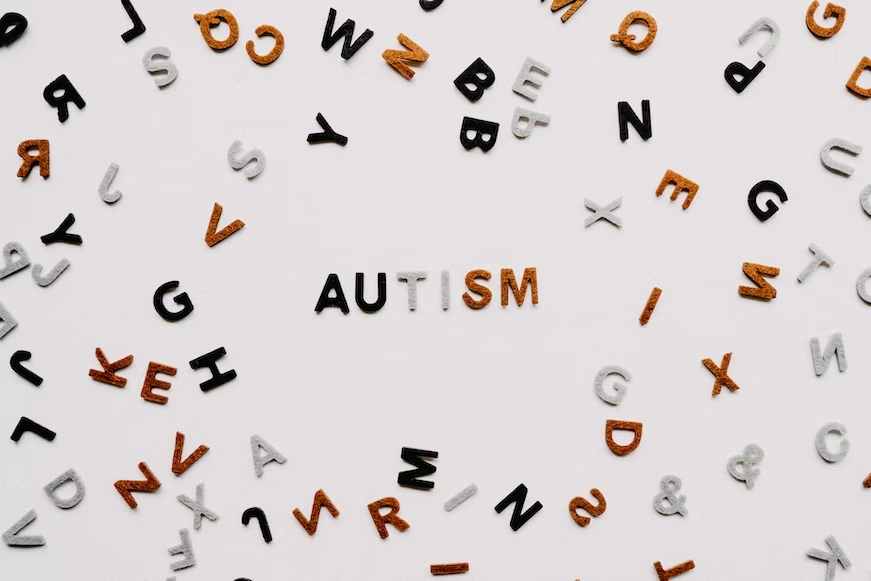Preventive Healthcare
All You Need to Know about Genetic Testing for Autism
8988 Views
0

Are you curious about what genetic testing can tell us about autism? Have you ever wondered if there's a way to determine the likelihood of your child developing this condition? Look no further!
From understanding the basics of genetics and how they relate to autism, to exploring the various types of tests available and their accuracy, we've got you covered. Let's dive in and discover how genetic testing can help us better understand and manage this complex neurodevelopmental disorder.
Different Types of Autism Spectrum Disorders (ASD)
There are four main types of autism spectrum disorders (ASD):
1. Asperger’s Syndrome:
This form of ASD is characterized by social and communication difficulties, as well as repetitive behaviours. Individuals with Asperger’s Syndrome typically have above-average intelligence. They do not experience delays in cognitive development or language skills.
2. Pervasive Developmental Disorder:
Not Otherwise Specified (PDD-NOS): This is the most common type of ASD. It is characterised by milder symptoms than other forms of ASD. Individuals with PDD-NOS typically have difficulty with social interactions and communication. But they do not display more severe symptoms associated with other types of ASD.
3. Autistic Disorder:
It is also known as “classic autism”. This form of ASD is characterised by more severe symptoms than other forms of ASD. This includes significant delays in cognitive development and language skills, as well as repetitive behaviours.
4. Rett Syndrome:
This is a rare form of ASD. It primarily affects girls. It is characterised by intellectual disability, loss of motor skills, and abnormal hand movements.
Causes of Autism
There are many possible causes of autism. But most experts believe that it is caused by a combination of genetic and environmental factors.
- Some studies have suggested that certain prenatal exposures, such as viral infections or certain medications, may increase the risk for autism. However, it is not clear whether these exposures are truly causal or if they are simply associated with other factors that increase the risk for autism.
- Most cases of autism appear to be caused by a combination of genetic and environmental factors. Studies of twins have shown that heritability plays a role in ASD. This means that ASD is likely caused by a mix of inherited and spontaneous mutations (de novo mutations).
In addition to genetics, exposure to certain environmental factors during pregnancy has been linked to an increased risk for ASD. These include certain infections during pregnancy (e.g., rubella), exposure to heavy metals (e.g., mercury), and the use of certain medications (e.g., thalidomide).
How is Autism Diagnosed?
- Most cases of autism are diagnosed in children between the ages of two and three. However, diagnosis can be made as early as 18 months and as late as four years. Diagnosis of autism is generally based on observations of the child's behaviour.
- There is no single medical or genetic test for autism. However, testing may be done to rule out other conditions with similar symptoms, such as Fragile X syndrome or tuberous sclerosis. Testing may also be done to confirm a suspected diagnosis of autism based on the child's behaviour.
- Autism diagnoses have been on the rise in recent years. There are several possible explanations for this. These include increased awareness and better diagnostic tools. It is not clear if there has been a true increase in the prevalence of autism or if more cases are being detected than in the past.
Genetic Testing for Autism
There is not one autism gene but many that may be associated with the disorder. And while there’s no cure for autism, early intervention can make a big difference in a child’s development. So if you’re thinking about having your child tested for autism, here’s what you need to know.
What is Genetic Testing?
Genetic testing is a way to look at your child’s chromosomes and DNA to see if they have any changes or mutations that are associated with autism. The test can be done with a blood sample or a saliva sample.
What Does The Test Look for?
The test looks for changes in certain genes that have been linked to autism. These changes can be passed down from parents to their children. In some cases, these changes may increase the risk of developing autism, but they don’t necessarily mean that the child will develop the disorder.
What are The Benefits of Genetic Testing?
If your child does have changes in their genes that are linked to autism, getting an early diagnosis can help them get the support and treatment they need as early as possible. Autism spectrum disorder is a complex condition. Early intervention is essential for helping children reach their full potential. Early intervention services can include behavioural therapy, speech therapy, occupational therapy, and other types of support.
Are There Any Risks?
There are some risks associated with genetic testing. This includes the potential for a false positive or negative result. It’s important to discuss the risks with your doctor before getting testing done.
Genetic testing can provide valuable information about autism. It may also help you better understand your child’s risk of developing this condition. However, it is important to remember that genetic testing cannot definitively diagnose autism, and there are risks associated with testing. Talk to your doctor to determine if genetic testing is right for you and your family.
Pros of Genetic Testing for Autism
- There are many potential benefits of genetic testing for autism. One of the most important is that it can help identify individuals who may be at risk for the disorder. This will allow for earlier diagnosis and intervention.
- Additionally, genetic testing can provide important information about an individual’s specific autism diagnosis. It can help guide treatment and support plans. In some cases, genetic testing may also reveal that an individual does not have autism. This can provide relief from uncertainty.
Conclusion
We've explored the different types of genetic testing available to diagnose autism, as well as potential risks and benefits. Although this information can be overwhelming, parents and caregivers need to understand their options when it comes to genetic testing for autism.
Ultimately, any decision regarding diagnostic testing should be discussed with a medical professional who specializes in diagnosing and treating individuals with an autism spectrum disorder.
You can count on us at Metropolis Healthcare to provide you with accurate genetic testing results. Our expert staff, combined with state-of-the-art testing facilities, will ensure that we provide you with dependable test results quickly. Contact us today to book a slot!























 WhatsApp
WhatsApp